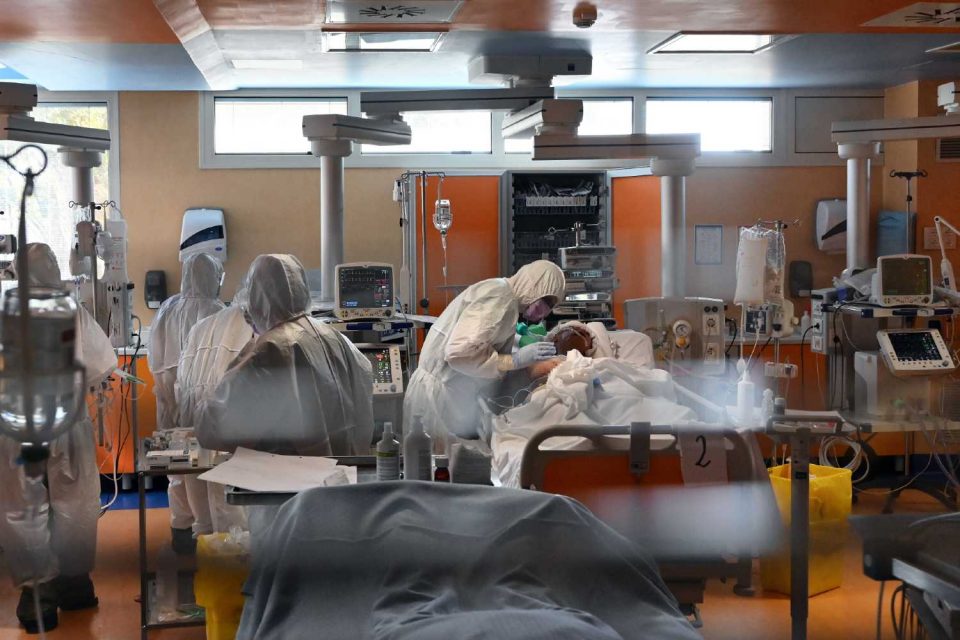Overview inside hospitals while fighting coronavirus

Doctors and nurses from the Casalpalocco hospital on the outskirts of Rome silently wander around the coronavirus patients who lie motionless on their beds surrounded by machines that monitor their vital signs.
Medical personnel adhere to strict safety protocols.
Everyone is dressed from head to toe in a white protective suit with a hood, his hands closed in latex gloves while a mask and wraparound glasses protect the face.
Nurses regularly clean gloves with disinfectant gel.
One at a time, they go out for a breath of fresh air, but even the singing of birds cannot make them forget their patients for a moment.
Some try to relax with a nervous drag on a cigarette. Dressed in a white coat, the director of the hospital Antonino Marchese paints a difficult picture.
He says to AFP: “The number of infected patients is certainly higher than that given every evening in the official tally published because many patients went into isolation without being tested. They are at home and are slowly improving.
"Other patients have probably been infected and haven't even realized it and have recovered," says Marchese, a shake of white hair that frames a face half-covered with a mask.
"The number of infected people is greater than what they say," he concludes. Although a semblance of calm is evident in the intensive care unit, Marchese recognizes the problems of the deficiency.
"Unfortunately, we weren't well prepared," he says, adding that a sudden wave of mass consumption of some commodities following the first few cases had been a problem and "it's only now that the factories are converting (manufacturing) to supply us. .
A coronavirus patient who has recovered is Fabio Biferali, a 65-year-old cardiologist from Rome who spent eight days "isolated from the world" in intensive care at the Policlinico Umberto I. in Rome
Creeping fears of death
“I have had strange pains. Being a doctor, I said it was pneumonia. It was like having a marmoset on your back, ”said Biferali. “I can't talk about this experience without crying.
Tears come easily to me.
“Being a doctor helped me overcome the pain. The treatment for oxygen therapy is painful, the search for the radial artery is difficult. Other desperate patients shouted, "enough, enough", "he said.
“The worst thing was the night. I could not sleep, anxiety flooded the room. During the day the doctors, the maintenance staff, the people who distributed the food came.
“At night, nightmares came, death was hiding.
“Since I wasn't sleeping, I was counting the boy's breaths in the next bed with the stopwatch on my phone. I did my job to pay attention to it. In this way, I forgot about myself, "he added.
He recalled that the medical staff "was completely covered, feet, hands, head. I could only see their eyes - affectionate eyes - behind the glass mask. I could only hear their voices. Many were young, frontline doctors. it was a moment of hope. "
When asked what he had missed in those days, Biferali said to his relatives.
“I was afraid of never seeing them again, of dying without being able to hold them by the hand. I was letting despair flood me ... "
He says he learned a lesson from his experience: “From now on I will fight for public health. You can't treat it like a bean counting exercise and leave it in the hands of politicians.
"We must defend one of the best health systems in the world."